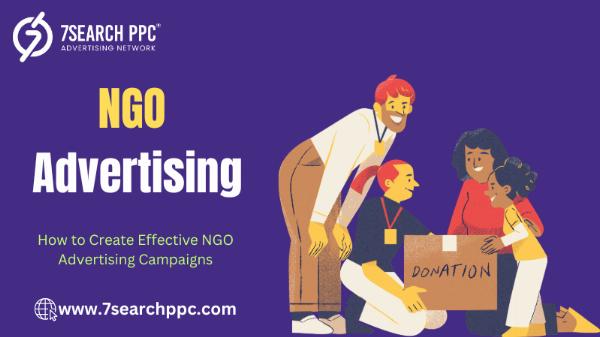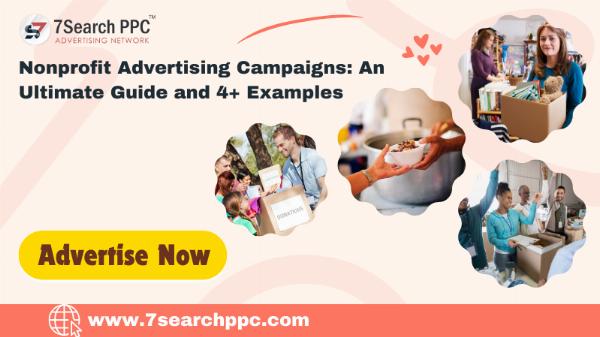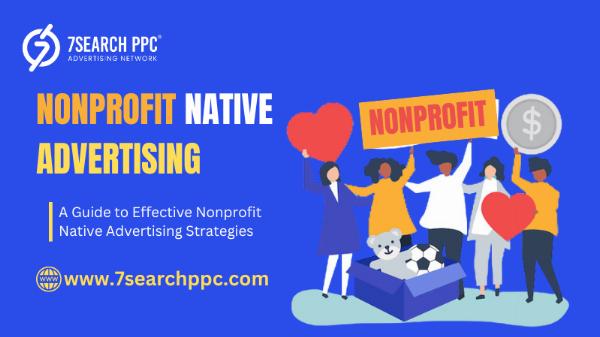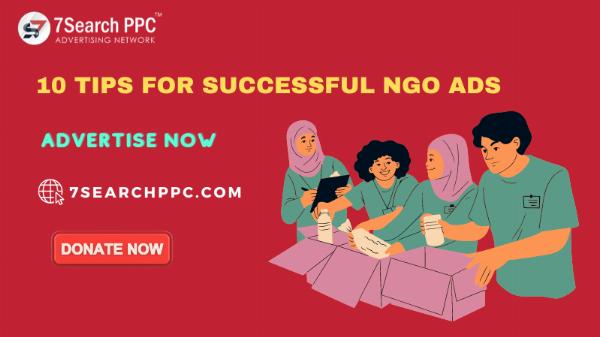How to Create Effective NGO Advertising Campaigns

Strong 8k brings an ultra-HD IPTV experience to your living room and your pocket.
How to Create Effective NGO Advertising Campaigns
Non-governmental organizations (NGOs) are vital for promoting various social, environmental, and humanitarian causes. However, like any other organization, NGOs need a well-thought-out advertising strategy to spread their message and raise awareness. With the rise of digital platforms, effective NGO advertising campaigns can drive change, raise funds, and expand outreach. In this article, we’ll explore how to create impactful NGO advertising campaigns, incorporating strategies and best practices for maximizing visibility and engagement.
1. Understanding the Objectives of Your NGO Campaign
Before launching any advertising campaign, it's essential to define the objectives clearly. An NGO typically has a range of goals, such as:
- Raising awareness for a cause
- Generating donations or funding
- Recruiting volunteers
- Educating the public on specific issues
- Mobilizing supporters for advocacy
When crafting your NGO advertising strategy, align the objectives with the right type of campaign. For instance, a campaign designed to raise funds might look very different from one focused on spreading awareness.
Example:
An NGO focused on climate change might run a campaign that combines educational videos with donation asks. On the other hand, an animal welfare organization might focus on recruiting volunteers by showcasing the impact of its rescue operations.
2. Identifying Your Target Audience
An essential component of any NGO ad campaign is identifying your target audience. Knowing who you're trying to reach will help determine where and how to run the campaign.
- Demographics: Who is most likely to engage with your cause? Consider factors like age, gender, location, and profession.
- Psychographics: What values or interests does your audience hold? Are they more likely to support environmental causes, human rights, or animal welfare?
- Behavioral Data: Look at how your audience interacts with similar NGOs. Do they share posts on social media, make donations, or attend events?
Once you've mapped out your target audience, you can design more personalized campaigns that resonate emotionally and practically.
Example:
A local NGO focused on child education in rural areas may target individuals in urban centers who are likely to donate. In contrast, a global human rights NGO may focus on younger, socially active individuals who use social media platforms like Instagram or TikTok.
3. Choosing the Right Platforms for NGO Ads
There are several digital advertising platforms and advertising networks where NGOs can promote their cause effectively. Choosing the right medium for your message ensures that your campaign will be seen by the right people at the right time.
a. Social Media Advertising
Social media platforms such as Facebook, Instagram, Twitter, and LinkedIn offer NGOs the chance to run targeted ads. Each platform has its strengths, and your selection should depend on your audience.
- Facebook and Instagram: These platforms work well for visual and emotional storytelling, allowing NGOs to share impactful images and videos.
- Twitter: Ideal for quick, real-time updates and advocacy campaigns.
- LinkedIn: More suitable for NGOs looking to attract corporate partnerships or professional volunteers.
b. Search Engine Advertising
Platforms like Google Ads allow NGOs to display ads when people search for specific keywords. The Google Ad Grants program offers NGOs $10,000 per month in free advertising credit, making it a valuable tool for any organization looking to expand its outreach.
c. Display Advertising and NGO Ad Networks
Display ads, such as banners or video ads on websites, can reach a broader audience. Partnering with an NGO ad network ensures that your ads are displayed on websites with aligned values or related causes. These networks help spread your message to websites that your target audience frequently visits.
d. Native Advertising
Native ads blend seamlessly with the content on platforms and are non-intrusive. For example, you can write articles or create sponsored content on news websites or blogs that talk about your NGO’s work. Native advertising platforms ensure your content reaches readers interested in humanitarian, environmental, or social causes.
4. Creating Compelling NGO Ads
The success of any NGO advertising campaign depends largely on the quality of your ad creatives. Whether you’re producing a video, writing a headline, or designing graphics, the content needs to evoke emotions and prompt action.
a. Emotional Storytelling
One of the most effective ways to connect with an audience is through storytelling. Human stories, testimonials, and real-world impact can grab attention and drive people to engage with your cause. Use your ads to tell the story of how donations, volunteerism, or advocacy have made a difference.
b. Strong Call to Action (CTA)
Every NGO ad should include a clear call to action (CTA) that guides the audience on what to do next. Whether it’s “Donate Now,” “Join Our Cause,” or “Learn More,” ensure the CTA is visible and direct.
c. Visual Content
High-quality visuals are crucial for NGO ads. Use powerful imagery, infographics, and videos that reflect the core message of your organization. Make sure that the visuals are emotionally engaging, visually appealing, and align with your NGO's brand identity.
5. Budgeting and Measuring Campaign Success
Advertising for NGOs often comes with tight budgets. However, it’s possible to create successful campaigns by using resources wisely. Platforms like Google Ad Grants offer free credits, and many social media platforms offer discounted or free advertising options for NGOs.
a. Budget Allocation
When working with a limited budget, focus on platforms and advertising methods that offer the highest return on investment (ROI). Search engine ads, social media campaigns, and NGO ad networks often provide significant value for money.
b. Measuring Success
It’s essential to track the effectiveness of your NGO advertising campaign. Use analytics tools such as Google Analytics, Facebook Ads Manager, or specialized NGO ad network platforms to measure KPIs such as:
- Click-through rate (CTR)
- Conversion rate (donations, sign-ups, etc.)
- Engagement metrics (likes, shares, comments)
By reviewing these metrics regularly, you can tweak your campaigns to improve results and make better use of your budget.
6. Collaborating with Influencers and Partners
Collaborating with influencers or partnering with like-minded organizations can increase the reach of your NGO campaigns. Influencers who support your cause can share your message with their followers, driving traffic and donations.
Similarly, partnerships with other NGOs, corporations, or media outlets can amplify your reach and allow you to tap into new audiences.
Example:
An environmental NGO could partner with eco-friendly brands or work with an influencer in the sustainability niche to promote an upcoming campaign.
Conclusion
Creating an effective NGO advertising campaign requires a mix of strategic planning, understanding your audience, and utilizing the right platforms. By focusing on clear objectives, selecting the appropriate advertising methods, and crafting compelling stories, NGOs can raise awareness, increase donations, and engage more volunteers. Using tools like Google Ad Grants and partnering with influencers or NGO ad networks can help stretch your budget while achieving a significant impact. Regularly monitor your campaign’s performance to ensure you’re meeting your goals and making a real difference.
Frequently Asked Questions (FAQs)
What is the best platform for NGO advertising?
Ans. The best platform depends on your target audience. Social media platforms like Facebook and Instagram are ideal for storytelling and reaching a broad audience. Google Ads, through its Google Ad Grants program, offers excellent value for search-based campaigns.
How can an NGO create ads with a limited budget?
Ans. Leverage free resources like Google Ad Grants and focus on platforms that offer the highest ROI, such as social media ads or NGO ad networks. Collaborating with influencers or using native advertising can also stretch your budget.
What is an NGO ad network?
Ans. An NGO ad network is a platform that helps NGOs display their ads on websites aligned with their cause. These networks ensure that NGO ads are shown to relevant audiences, increasing the chances of engagement.
How can I measure the success of my NGO ad campaign?
Ans. Use analytics tools to track key performance indicators (KPIs) such as click-through rates, conversion rates, and engagement metrics. Regularly reviewing these metrics will help you optimize your campaign for better results.
How important is storytelling in NGO advertising?
Ans. Storytelling is crucial for NGO ads because it helps establish an emotional connection with your audience. By sharing real-life stories, testimonials, and the tangible impact of your work, you can inspire people to engage with and support your cause.
Note: IndiBlogHub features both user-submitted and editorial content. We do not verify third-party contributions. Read our Disclaimer and Privacy Policyfor details.







